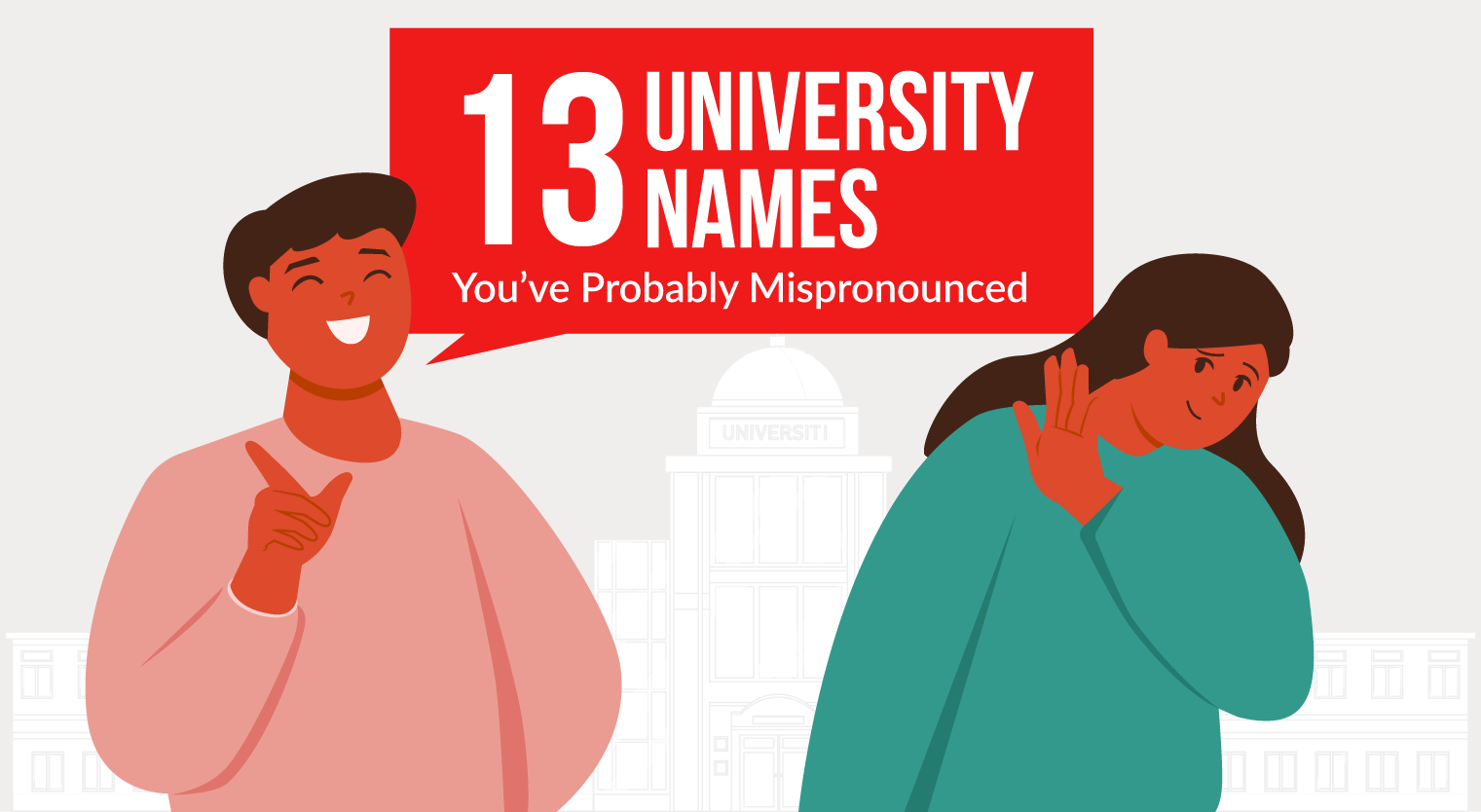Have You Made Any of These Common Grammar Mistakes?
Want to polish your English language skills and master the art of perfect grammar? Read on to identify common grammar mistakes you've probably made.
Published 25 Mar 2019
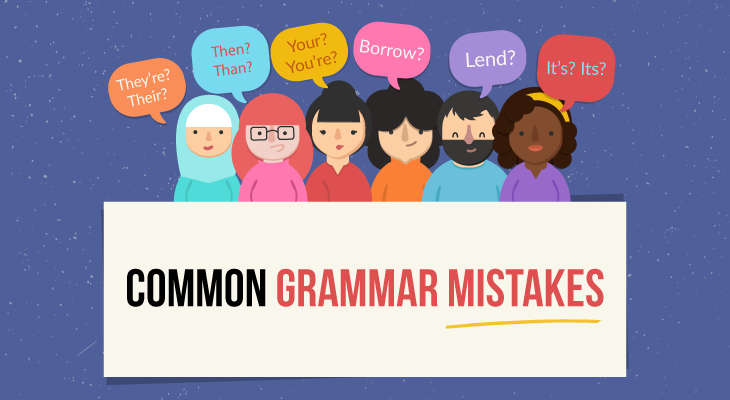
Grammar’s a tough nut to crack. Even the most well-versed in the rules of grammar can sometimes mess things up, so you shouldn't worry if you commit a few grammar crimes once in a while. But, it is important to take the time to improve your spelling and grammar as English proficiency is one of the main things employers look for when hiring new candidates.
Want to polish your English language skills and master the art of perfect grammar? Read on to avoid these common grammar mistakes you may have made once or twice in your life!
#1. Your / You’re
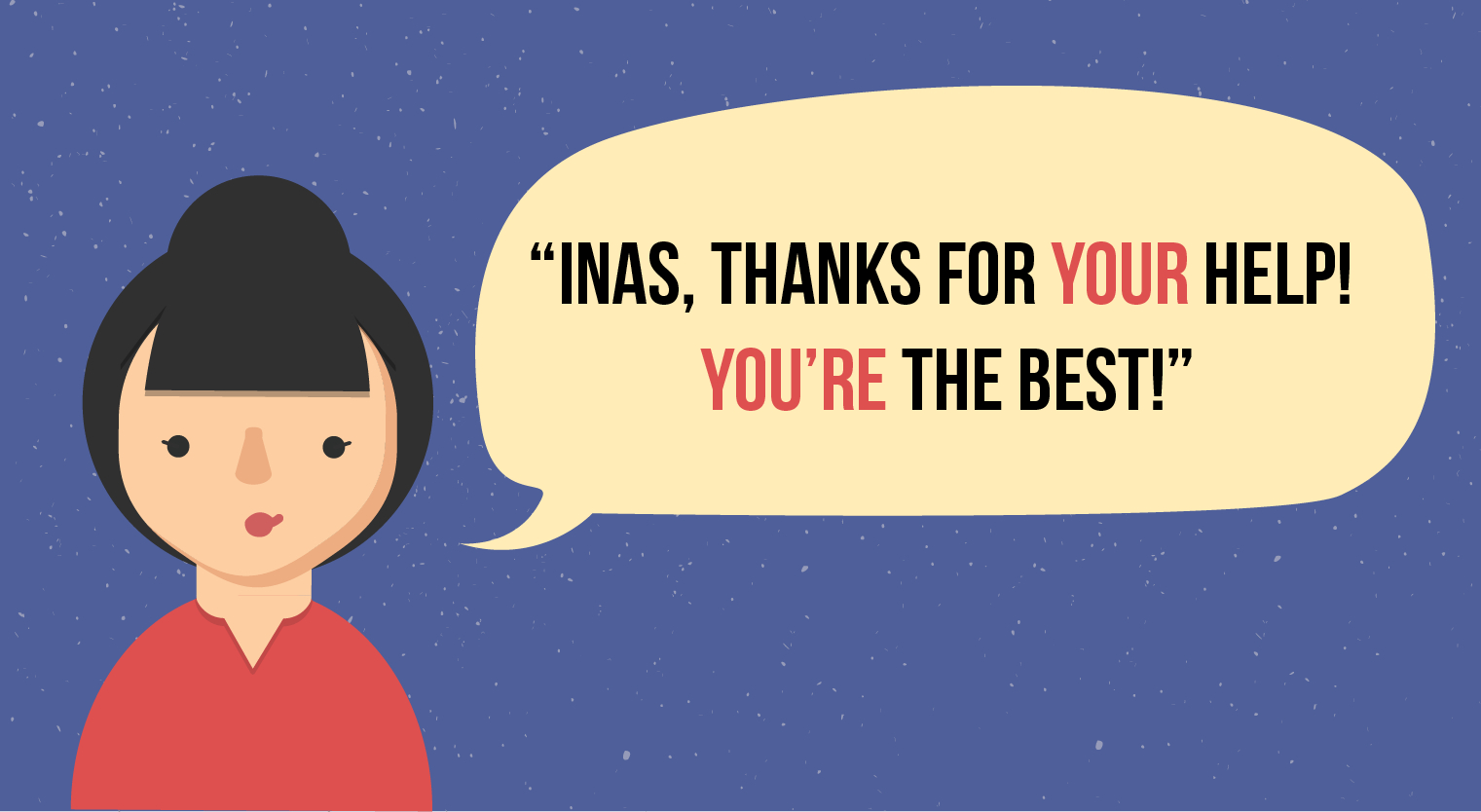
If you’re guilty of mixing up these two in your everyday conversation, don’t worry! It’s a very common mistake to make, which can be easily avoided if you remember this simple rule:
“You’re” is a contraction of “you are” and it is used to describe a person, so use it in sentences like “You’re a great friend” or “You’re amazing”.
The word “your”, on the other hand, is used to show that something belongs to someone else. For instance, “Your exam scores are impressive” or “I love your dress”.
#2. They’re / Their / There
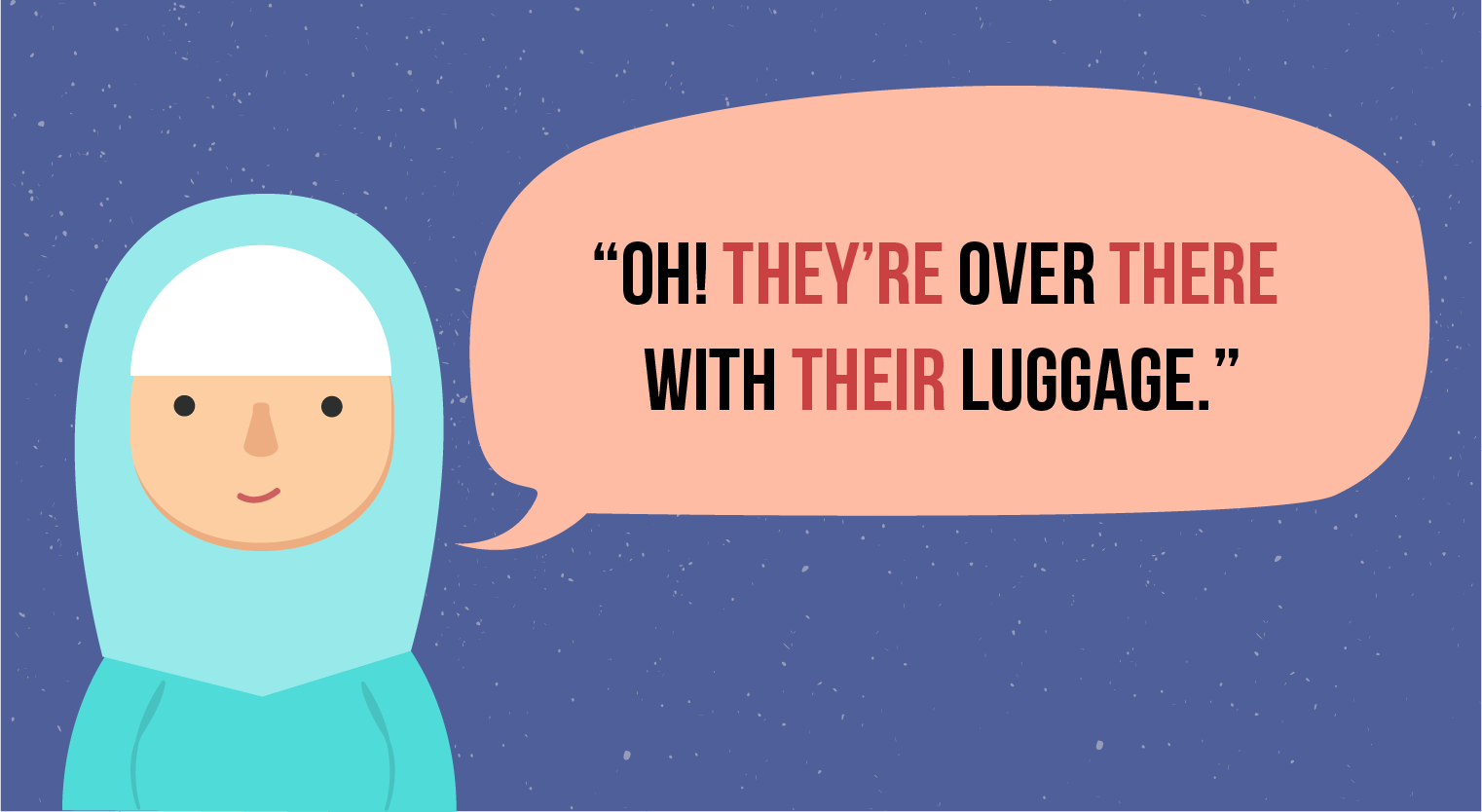
“Their over they’re with there luggage”.
Did your grammar-sense tingle after reading that sentence? Or does it sound fine to you?
The correct sentence structure should be “They’re over there with their luggage”. "They're" is a contraction of the words "they" (referring to more than one person or thing) and "are". Yup, it's similar to "you're", so it will be used in a sentence like this: "They're going to work on it right now" or “They’re not coming”.
"Their" is the possessive case of the pronoun "they" and is usually used to show that something belongs to more than one person. For example: "They went to order their food at the cashier" or “Lisa and Jen left their homework at home”.
"There" is an adverb that places something at a location. For instance, "The shop is located right over there". Additionally, "there" is also used as a pronoun at the beginning of a sentence, such as "There is a light that never goes out".

#3. It’s / Its
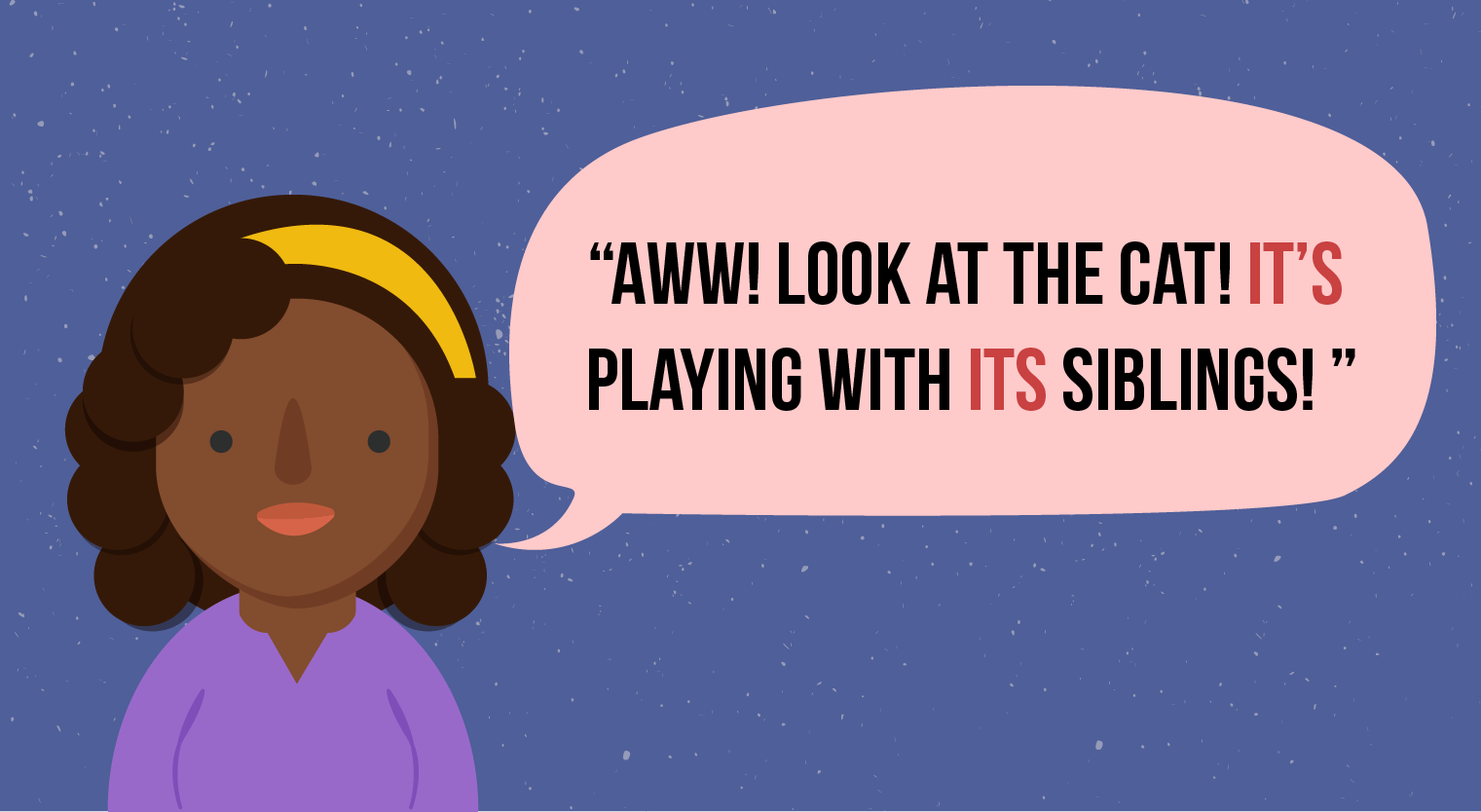
These words may seem interchangeable, but “it’s” and “its” mean two drastically different things.
Wondering how to squash this confusion once and for all? Just remember that similar to “you’re”, the word “it’s” is a contraction of “it is”. For example, instead of saying “It is a pleasure to meet you”, you can say “It’s a pleasure to meet you” to sound more casual.
Meanwhile, “its” is a possessive pronoun and is used to indicate that something belongs to something else — remember that it doesn’t require an apostrophe. For example, “The cat licked its fur” or “The hotel raised its rates”.
Apply for university with EduAdvisor
Secure scholarships and more when you apply to any of our 100+ partner universities.
Start now#4. To / Too

Ah, this one is responsible for even more confusion. An extra "o" here and there can change the meaning of your sentence, so be cautious and use "to" and "too" correctly to get your message across.
First up, "to" acts as an adverb and preposition, which means it shows that something or someone is moving to a position either physically or mentally. For example, "She went to the loo" and "They decided to go to that restaurant".
"Too" plays a single role as an adverb and means "also" or "in addition". In a sentence, the word "too" will be used in this way: "She loves that band too" or “I like dark chocolate too”.
#5. Borrow / Lend
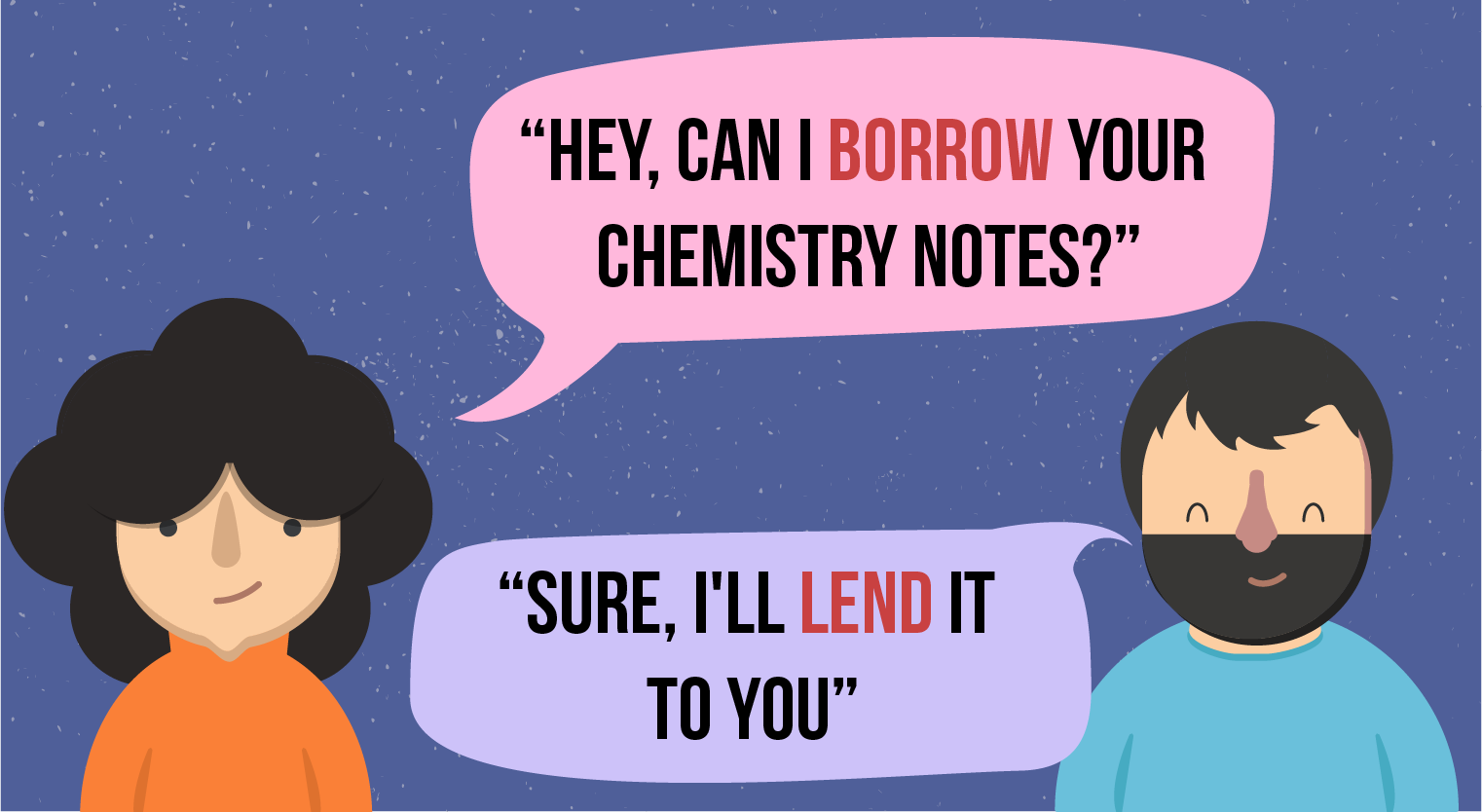
"Bro, can I lend your pencil?"
"You must be happy, she's going to borrow you a good book"
Guess what? The two sentences above are grammatically wrong. People around you may use it interchangeably, thinking it means the same thing, but it's not! "Lend" means giving something to someone for a short time and expecting them to return it to you. So the word is better suited for the second sentence mentioned above. For example, "You must be happy, she's going to lend you a good book" would be the correct way of phrasing the sentence.
"Borrow" means receiving something from someone with the full intention of returning it to them. In a sentence, it'll look like this: "Could I borrow your phone to call my parents?" or “Can I please borrow your pencil?”. If you find this confusing, just remember that you “borrow from“ and “lend to”.

#6. Then / Than
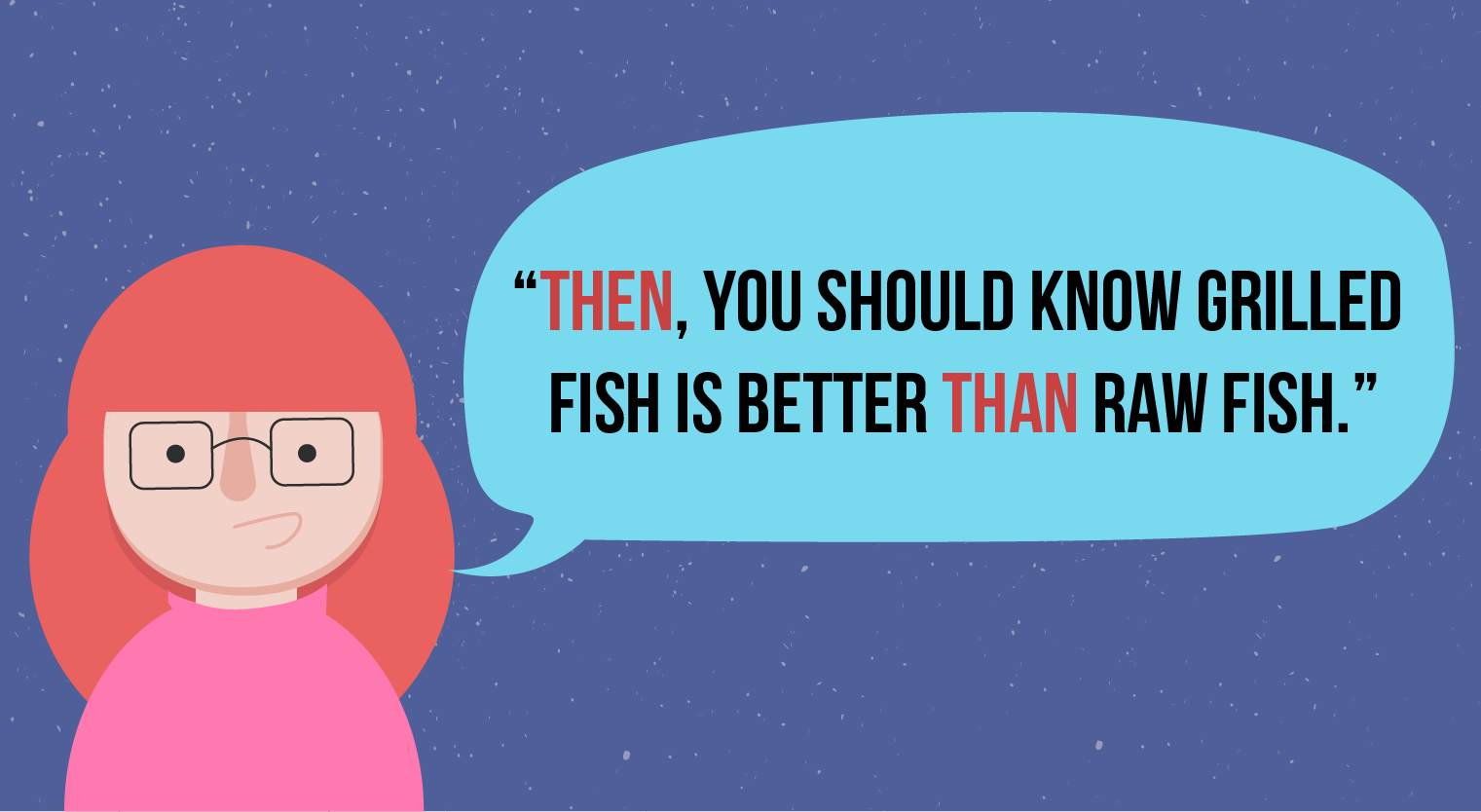
Only one letter differentiates these two words, but it's enough to make you dizzy with the prospect of mixing them up. Luckily, all you need to do to avoid this mixup is remember this rule:
"Then" is an adverb and adjective that can mean at that time, next in line, in addition, and accordingly. For example, “Pour 2 cups of flour in the bowl. Then, mix in the butter" or “She wasn’t in Malaysia last year. She was studying in America then”.
“Than" on the other hand, is a conjunction used to compare elements. For example, “She is taller than him” or “Your rules are easier said than done”.
Now that you’re aware of these common grammar mistakes and how to avoid them, we’re sure you’ll be able to conquer your next essay with triumph and people will be in awe of your improved English language skills. Here’s to banishing grammar mistakes once and for all!



